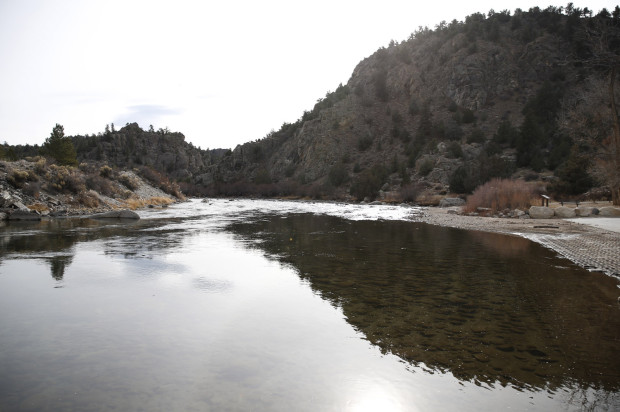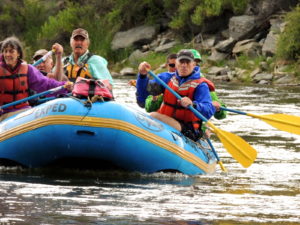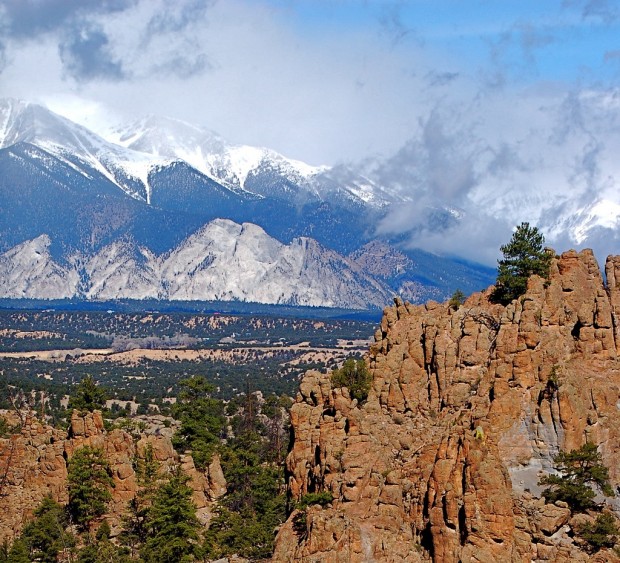We have much more to do and your continued support is needed now more than ever.
The Antiquities Act: Vital for the Public, Vital for America’s Outdoor Legacy

In December 2014, more than 700 people poured into a community events center in Salida for a chance to speak out on the proposal to establish the 22,000-acre Browns Canyon National Monument where the Arkansas River, one of the country’s best whitewater rafting spots, flows. Most of the speakers supported conserving the recreation and wildlife gem. Many of them, including Bill Dvorak, the National Wildlife Federation’s public lands organizer and one of the state’s premier rafting guides, had been waiting more than 20 years.
Listening to the Public
President Barack Obama responded by making Browns Canyon one of the country’s newest national monuments. After years of inaction by Congress, the president used his authority under the Antiquities Act to ensure that the rugged backcountry, important fish and wildlife habitat and recreation destination will be around for a long time. The act, under attack by members of Congress, has been invoked by presidents from both parties since 1906 to establish 142 national monuments.
“It was surreal,” Dvorak said of the invitation to meet with Obama and others at a Feb. 24 ceremony marking the declaration. “We didn’t know it was going to happen until shortly before and I was scrambling to get a flight out. I didn’t have much time to think it over.”
But he’s had plenty of time to think about the value of Browns Canyon and the wisdom of conserving it. And he rejects arguments by critics in Congress that the public was left out of the decision to make it a national monument.
“You can’t have more public input than we have had. You’re never going to get 100 percent consensus, but we had overwhelming public support,” Dvorak said.
Without the Antiquities Act, the future of Browns Canyon would’ve been uncertain, he added. He pointed out that mining claims were recently filed in the area, renowned for its trout fishing. The area provides habitat for bighorn sheep, mountain lions, mule deer, elk, black bears and raptors. It gives hikers clear views of the bank of surrounding Fourteeners — mountains more than 14,000 feet in elevation.
Dvorak, president of the community group Friends of Browns Canyon, and Keith Baker, the group’s executive director, were recently honored by the Conservation Lands Foundation as public lands advocates of the year for their work on helping win approval of a monument designation.

“I urge the president and the Colorado congressional delegation to listen to the people of Chaffee County and come together once again to finally get this decades-long effort over the finish line,” Hefley wrote.
Thanks to the Antiquities Act, there was a way to honor the public’s will while conserving some of our country’s natural resource legacy and outdoor heritage. After years of grassroots work by diverse coalitions, important wildlife habitat, hunting, fishing and recreation areas and stunning landscapes were ensured lasting spots in that legacy when Obama established the Rio Grande del Norte and Organ Mountains-Desert Peaks national monuments in New Mexico.
Members of Congress working to gut the Antiquities Act contend that presidential declarations to save historic, natural and archaeological treasures are a top-down approach that cuts out the public. Just looking at the list of places set aside by presidents starting with Theodore Roosevelt reveals how crucial this law has been to enriching Americans’ lives. The list includes the Grand Canyon, Muir Woods, Capitol Reef, the Statue of Liberty, Dinosaur and Bandelier national monuments. And far from doing an end-run around the public, the Antiquities Act has given the public a voice and someone to listen when Congress refuses to.

![]() Take Action NOW to protect wildlife habitat, curb climate change, and save countless wetlands!
Take Action NOW to protect wildlife habitat, curb climate change, and save countless wetlands!





















